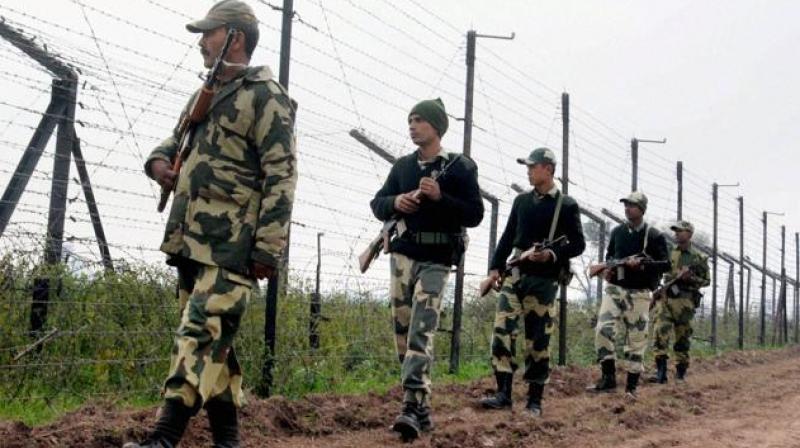Pakistan, India exchange fire along LoC

Islamabad: Nuclear-powered Pakistan and India on Thursday exchanged fire at the Line of Control (LoC) in Kashmir, a day after Pakistan downed two fighter aircrafts of India and captured an Indian pilot. The United States, China and other world powers have urged restraint from the two nations as tensions escalate in the wake of a suicide car bombing that killed at least 40 Indian paramilitary police in Indian-controlled Kashmir on February 14. “History tells us that wars are full of miscalculation. My question is that, given the weapons we have, can we afford miscalculation,” Khan said during a brief televised broadcast to the nation. “We should sit down and talk.” Pakistan and India have fought several wars since independence from British colonial rule in 1947, with major conflict over Kashmir. Moreover, Pakistan shut its airspace which was later restored partially, forcing many commercial airlines to reroute. Thai Airways International announced on Thursday that it had cancelled flights to Pakistan and Europe, which left thousands of passengers stranded in Bangkok. Recent clash began on Thursday morning when troops from India and Pakistan briefly exchanged fire in Poonch, a district in Indian-occupied Kashmir. Pakistan maintains a stance that Indian Prime Minster Narendra Modi has pushed the stability of the entire region at risk just for the sake of securing a victory in the upcoming general election in India. Late on Wednesday B.S. Yeddyurappa, the leader of Modi’s Bharatiya Janata Party in the southern state of Karnataka, said India’s strike inside Pakistani territory would help the party to win back power in the state – the first such comment from a member of the ruling party. “This has brought a pro-Modi wave all through the country,” he told reporters. “The effect of this will be seen in the elections.” The latest escalation marks a sudden deterioration in relations between the two countries. As recently as November, Pakistan’s leader Khan spoke of “mending ties” with India. The White House urged “both sides to take immediate steps to de-escalate the situation.” U.S. Secretary of State Mike Pompeo said in a statement he had spoken separately with the foreign ministers of India and Pakistan and urged them to “prioritise direct communication and avoid further military activity”. Pakistan’s envoy to the United States, Asad Majeed Khan, said Islamabad would like to see the Trump administration play a more active role in easing the crisis. At the same time, he said the lack of U.S. condemnation of India’s strike on Pakistan was “construed and understood as an endorsement of the Indian position, and that is what emboldened them even more”. China, the European Union and other countries including Iran also called for restraint. The Chinese government’s top diplomat, State Councillor Wang Yi, spoke by telephone with Pakistan Foreign Minister Shah Mehmood Qureshi and expressed “deep concern”, China’s foreign ministry said in a statement on Thursday. Thai Airways said it had cancelled more than a dozen flights to Europe due to closure of airspace by Pakistan, along with all flights to and from the country. Several airlines including Emirates and Qatar Airways, suspended flights to Pakistan on Wednesday, while others such as Singapore Airlines and British Airways were forced to reroute flights. Singapore Airlines said on Thursday all of its Europe-bound flights would continue as planned, avoiding the affected airspace as necessary. Flights from the Middle East and India were also affected. Air Canada said on Wednesday it has temporarily suspended service to India. Migrant workers were fleeing India’s Jammu and Kashmir and tourist arrivals have fallen to a trickle due to the conflict, badly hurting businesses in the Himalayan region known for its scenic beauty and fruit harvests.





